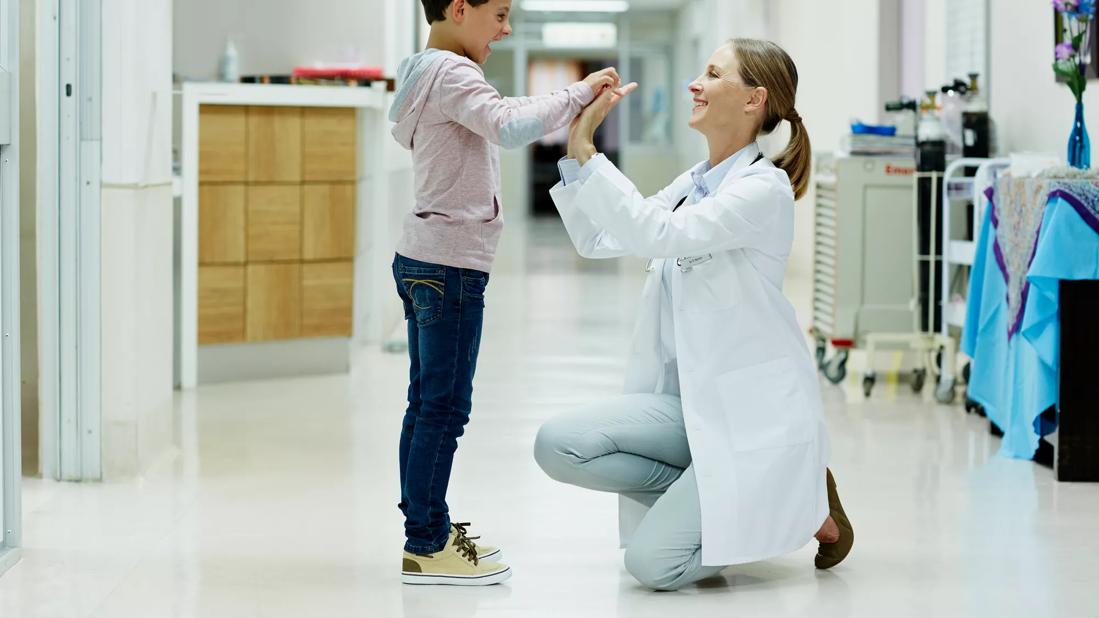Life after childhood cancer may look a little different

Image content: This image is available to view online.
View image online (https://assets.clevelandclinic.org/transform/612a866c-a763-48f8-905c-b9eabd57c152/GettyImages-493216345_jpg)
After Cancer: 6 Tips to Get Your Child Back on Track
After your child goes through successful pediatric cancer treatment, you may wonder whether life will ever get back to normal. The answer is largely yes. But it may not look exactly like life before your child’s diagnosis.
Advertisement
Cleveland Clinic is a non-profit academic medical center. Advertising on our site helps support our mission. We do not endorse non-Cleveland Clinic products or services. Policy
“I don’t want a previous cancer diagnosis to affect people’s daily lives,” says pediatric oncologist Seth Rotz, MD. “I don’t want them to deal with the cancer diagnosis on the daily or monthly. For most people, life gets back to normal, but it might look different.”
Your child may have some long-term effects from treatment. And knowing how to manage them is important in helping him or her reclaim a regular, everyday life.
Dr. Rotz highlights challenges young cancer survivors may face. And, he offers tips to help your child get back to normal.
Dealing with cancer may cause your child to miss quite a bit of school and fall behind classmates.
Or it may slow your child’s early development. Radiation therapy and high drug doses may cause memory problems and learning delays. Slow language development and comprehension skills are sometimes the result.
If you notice signs of a learning delay in your child, talk to your pediatrician or your treatment team. They can put you in touch with community resources that can help.
School referral programs, state or county social service agencies, and other educational or vocational programs all may help. They have resources, tools and techniques to support your child and help get him or her back up to speed.
Advertisement
Take your child for regular eye exams, to catch any problems as early as possible, Dr. Rotz says.
For some children, cancer treatment may cause cataracts to develop early. Your child could also experience double vision and glaucoma at an early age. If your child encounters vision problems, talk with your doctor about your options.
Ask your doctor to conduct a hearing test to identify any hearing loss. The results could change your child’s treatment course, Dr. Rotz says.
Chemotherapy and radiation treatments can sometimes cause hearing damage. This can also contribute to delays in language development, especially among younger patients.
After treatment, there are plenty of options that can improve your child’s ability to hear and communicate, including:
Many patients are more susceptible to cavities, Dr. Rotz says.
“They don’t get cleanings for a long time while on chemotherapy. Also, the roots in the teeth may not to grow as deeply,” he says.
Depending on the type of treatment your child has, it could put him or her at risk for developing a second cancer later in life.
For example, girls who receive chest radiation may need to start getting mammograms at age 25. Your child’s doctor also may recommend regular lung scans after treatment with chest radiation.
“Routine screening can help catch any additional problems early, making them easier to treat,” Dr. Rotz says.
Of course everyone should put more focus on making healthy lifestyle choices. But it’s even more vital for young cancer survivors.
Your child may face a higher risk of tooth decay, gum disease, bone problems, lung disease and heart disease. The best way to avoid these issues and get your child’s life back on track is to focus on healthy behaviors as much as possible, Dr. Rotz says.
“I encourage families to set an example. Eat a healthy diet. Limit alcohol, and don’t smoke. Exercise regularly. Take good care of your teeth and take any medications faithfully,” he says. “And, your child should visit his or her doctor regularly as life goes on.”
If you do these things — and prepare yourself to manage whatever challenges your child faces — you’ll navigate any long-term treatment effects as well as possible.
“We want to enable children to get on with life — to keep a cancer diagnosis from being a barrier,” Dr. Rotz says.
Advertisement
Advertisement

Delivered every Tuesday!
Sign up for our Health Essentials emails for expert guidance on nutrition, fitness, sleep, skin care and more
Learn more about our editorial process.
Advertisement
The short answer from an oncologist
Cancer is deadlier in racial and ethnic minority groups and for people in low-income areas
Thoughts and feelings can change over time; relaxation, self-care and support groups can help
Here's how you can tell if you're ready
One quarter of patients develop a brain tumor later
7 tips to guide you through their treatment
The cancer journey doesn’t end after treatment
Most recommended precautions center around minimizing bruising or swelling
Type 2 diabetes isn’t inevitable with these dietary changes
Applying a hot or cold compress can help with pain
Pump up your iron intake with foods like tuna, tofu and turkey